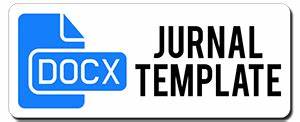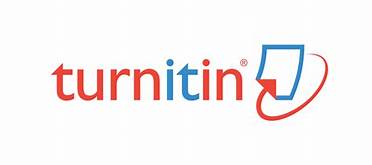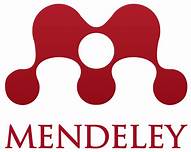Perencanaan Strategik Sekolah dalam Meningkatkan Mutu Pendidikan: Studi di Sekolah Dasar Guang Ming)
Abstract
The purpose of this study was to analyze and describe strategic planning at Guang Ming Medan Elementary School in achieving quality education, to find out how Guang Ming Medan Elementary School implements its strategy in achieving quality education, to find out how Guang Ming Medan Elementary School conducts strategic evaluations to achieve quality education. This research was conducted at Guang Ming Elementary School Weaving Factory Street No. 72 Medan. This research uses a qualitative case study approach. Respondents in this study were school principals, vice principals, teachers, and school committees. The findings of this study are as follows (1) strategic planning in improving the quality of graduates at SD Guang Ming Medan, is very good, has fulfilled the stages, namely: a. Analysis Stage. Analysis of the internal and external environment, examines the factors that affect the quality of graduates, captures information on current and future school conditions and evaluates the results of program implementation in the previous period as material for analysis in preparing a strategic plan. b. Strategy Formulation. The formulation is carried out by a team by adjusting the conditions of the school and taking into account the expectations of stakeholders; (2) Implementation of strategic planning in improving the quality of education at Guang Ming Elementary School is carried out, namely: a. Involve stakeholders by giving authority to teachers and staff, making program announcements at the beginning of the year, holding coordination meetings, and assigning tasks according to their fields. b. Maximizing existing resources, maximizing guidance and learning both in the academic and non-academic fields and using as much as possible the facilities and infrastructure owned by schools to support the achievement of superior quality graduates; (3) Evaluation and implications of strategic planning for the quality of education at SD Guang Ming, namely: a. Internal and external evaluations by evaluating all programs that have been implemented and those that have not been implemented, evaluating graduates every year, looking at teacher professionalism, evaluating achievements, and monitoring carried out by supervisors. b. Evaluation of the implications (impact), experiencing an increase in the quality of education with indicators: increasing the effectiveness of the teaching and learning process, increasing student achievement both academic and non-academic, increasing the number of students, improving teachers, and other academic achievements.
Keywords
Full Text:
PDFReferences
Admodiwirio, Soebagio. (2000). Manajemen Pendidikan Indonesia. Jakarta: Ardadizajaya,
Akrim. (2020). Application of Learning Model Strategies to improve Islamic Learning Outcomes. Budapest International Research and Critics Institute, Vol 2, No 2 2020
Anisa, N., Akrim., (2020) Manuruang, A.A. Development Of Teacher's Professional Competency In Realizing Quality Of Human Resources In The Basic School. IJEMS: Indonesian Journal of Education and Mathematical Science, Vol 1, No 2. 2020.
Anthony, Robert N and Vijay Govindarajan. (2007). Management Control Systems. Mc Graw-Hill: International Edition.
Badrudin. (2013). Dasar-Dasar Manajemen, Cetakan kesatu, ALFABETA, Bandung.
Conyers, M & Hills. D. (1994). Creative Human Resource Planning and Applications : A Strategic Approach. New York Prectice Hall, Inc
Colemen M & Bush, Tony, (2006). Manajemen Strategis Kepemimpinan Pendidikan, Yogyakarta. IRCISOD
Creswell, John W. (2015) Penelitian Kualitatif dan Desain Riset, terj. Ahmad Lintang Lazuardi dkk. Yogyakarta: Pustaka Pelajar
Daft, Richard L., Manajemen, Terjemahan Edward Tanujaya dan Shirly Tiolina, Edisi keenam, Buku 1, Salemba Empat, Jakarta, 2006 3. David, Fred R., Manajemen Strategis Kon- sep, Edisi Dua Belas, Buku 1, Salemba Empat, Jakarta, 2010
Elbanna, Said, (2009). Determinants of Strategic Planning Effectiveness : Extension of Earlier Work, Journal of Strategy and Management, Volume 2, Iss :2, pp.175- 187
Ghosh, N. (2005). Management Control Systems. New Delhi: Prentice-Hall of India.
Handoko, Hani T. (2009). Manajemen, Edisi 2, Cetakan Keduapuluh, BPFE Yogyakarta.
Hasibuan, Malayu P., (2006). Manajemen (Dasar, Pengertian dan Masalah), Bumi Aksara, Jakarta
Hunger, J. David., dan Thomas L. Wheelen., (2011). Manajemen Strategis, Terjemahan Julianto Agung, Edisi kelima, Andi Yogyakarta
Indra, D.S. (2003). Menuju Masyarakat Belajar. Jakarta : Logos
Kargar, Javad dan John A. Parnell (1996). Strategic Planning Emphasis and Planning Satisfaction in Small Firms : An Empirical Investigation, Journal of Business Strategies 13, No.1 : 42-64
Kurniawaty, I., & Faiz, A. (2022). Strategi Penguatan Profil Pelajar Pancasila di Sekolah Dasar. Jurnal Ilmu Pendidikan, 4(4), 2022.
Ketaren, A. Dongoran, F.R., Meliala, H.D., Tarigan, N., Simanjuntak, R. (2022). Monitoring dan Evaluasi Pemanfaatan Platform Merdeka Mengajar pada Satuan Pendidikan. Jurnal Pendidikan dan Konseling, Vol 4, No 6, 2022.
Lukiastuti, Fitri & Muliawan, Hamdani. (2011). Manajemen Strategik Dalam Organisasi. Yogyakarta: CAPS.
Makbuloh, Deden. (2011). Manajemen Mutu Pendidikan Islam: Model Pengembangan Teori dan Aplikasi Sistem Penjaminan Mutu. Jakarta: Rajawali Pers.
Marisa, M. (2021). Inovasi Kurikulum “Merdeka Belajar” di Era Society 5.0. Santhet: (Jurnal Sejarah, Pendidiikan Dan Humaniora), 5(1), 72.
Moleong J Lexy, (2004). Metodologi Penelitian Kualitatif, Bandung:Pt Remaja Rosdakarya.
Moutinho, L. dan P. A. Phillips (2002). The Impact of Strategic Planning on The Competitiveness, Performance and Effectiveness of Bank Branches : A Neural Network Analysis, International Journal of Bank Marketing, Volume 20, Iss : 3, pp.102 – 110
Muhibbin, Zainul. (2011). Problematika MTs Swasta di Surabaya Menghadapi Era Global, Laporan Penelitian, LPPM-ITS
Mukhtar, & Suparto, W. (2003). Manajemen Berbasis Sekolah. Jakarta: CV Misaka Galiza.
Nugroho, Agung, (2010). Implementasi Perencanaan Strategis di SMK Negeri 1 Slawi Kabupaten Tegal, Tesis, Universitas Islam Negeri Maulana Malik Ibrahim, Malang.
Prasetia, Indra (2022). Metodologi Penelitian. Pendekatan Teori dan Praktik. UMSU Pres.
Republik Indonesia. (2003). Undang-Undang Nomor 20 tahun 2003 Tentang Sistem Pendidikan Nasional. Jakarta : Mendiknas
Robbins, Stephen P. dan Mary Coulter. (2004). Manajemen, Alih Bahasa T. Hermaya dan Harry Slamet, Jilid I, Edisi ketujuh, PT. Indeks, Jakarta
Rochaety, Iman, N., & Nurdiah. (2005) . Sistem Informamsi Manajemen Pendidikan. Jakarta : bumi Aksara
Sagala, Syaiful. (2004). Manajemen Berbasis Sekolah & Masyarakat. Bandaung : alfabeta
Sagala, Syaiful. (2005).Administrasi Pendidikan Kontemporer. Bandung: Alfabeta
Saifulloh, M., Muhibbin, Z., & Hermanto. (2012). Strategi Peningkatan Mutu Pendidikan Di Sekolah. Jurnal Sosial Humaniora, 5(2), 206-218.
Sallis, Edward. (2006). Total Quality Management In Education (alih Bahasa Ahmad Ali Riyadi ). Jogjakarta : IRCiSoD
Scott, George M. (1999). Prinsip-prinsip Sistem Informasi Manajemen. Jakarta: PT RajaGrafindo Persada.
Siagian, Sondang P. (2007). Manajemen Stratejik. Jakarta: PT Bumi Aksara.
Sudarma, Made, Pengaruh Perencanaan Strategis Terhadap Kinerja Keuangan (Studi Kasus Pada Bank Perkreditan Rakyat di Malang), TEMA, Volume IV, Nomor 1, 2003
Sudarwan, Danim. (2007).Visi Baru Manajemen Sekolah. Jakarta : Bumi Aksara
Sugiyono.(2015). Metode Penelitian: Kualitatif, Kuantitatif dan Pengembangan. Alfabeta. Bandung
Suyadi, Prawirosentono. (2007) . Filosofi Baru tentang Manajemen Mutu terpadu abad 21. Jakarta : Bumi Aksara
Ugboro, Isaiah O., Kofi Obeng dan Ora Spann, Strategic Planning As an Effective Tool of Strategic Management in Public Sector Organization, Administration and Society Journal, Volume 43, No 1, 2011
Zamroni. (2007). Manajemen Stratejik. Jakarta: PT Bumi Aksara.
DOI: https://doi.org/10.30596/jmp-dmt.v4i1.15838
Refbacks
- There are currently no refbacks.







